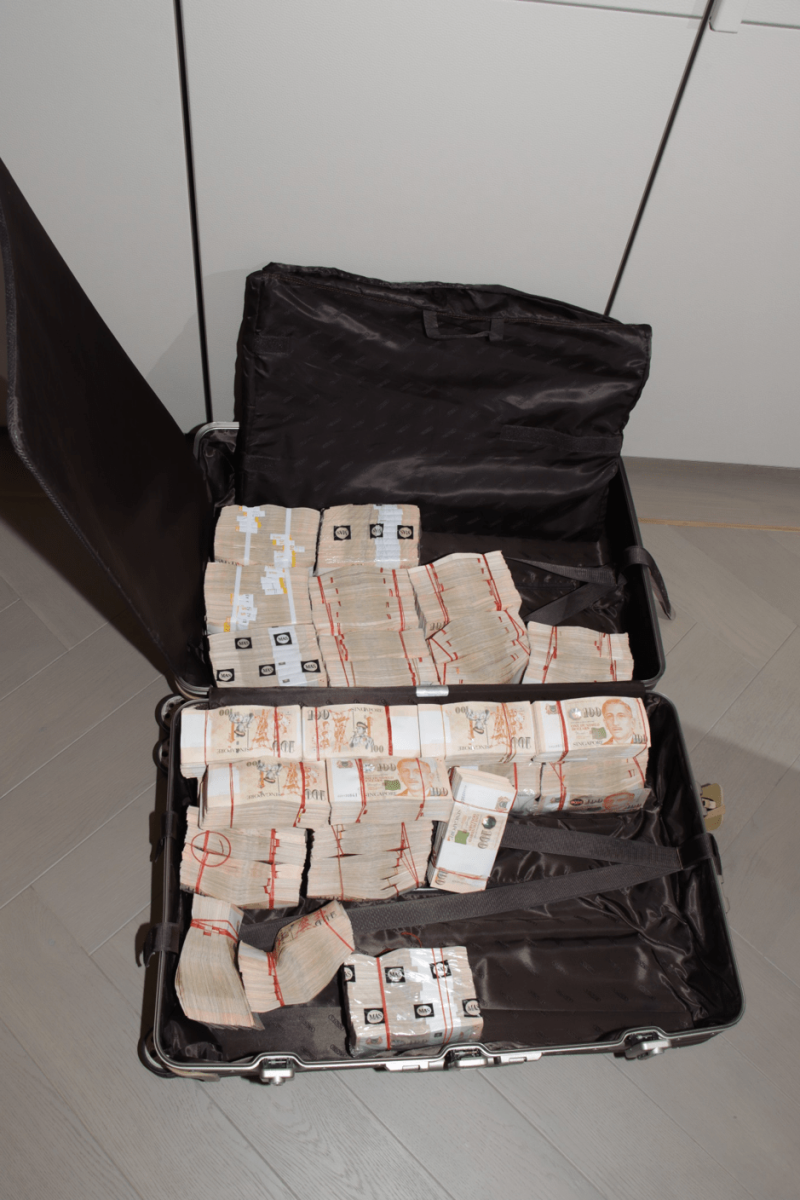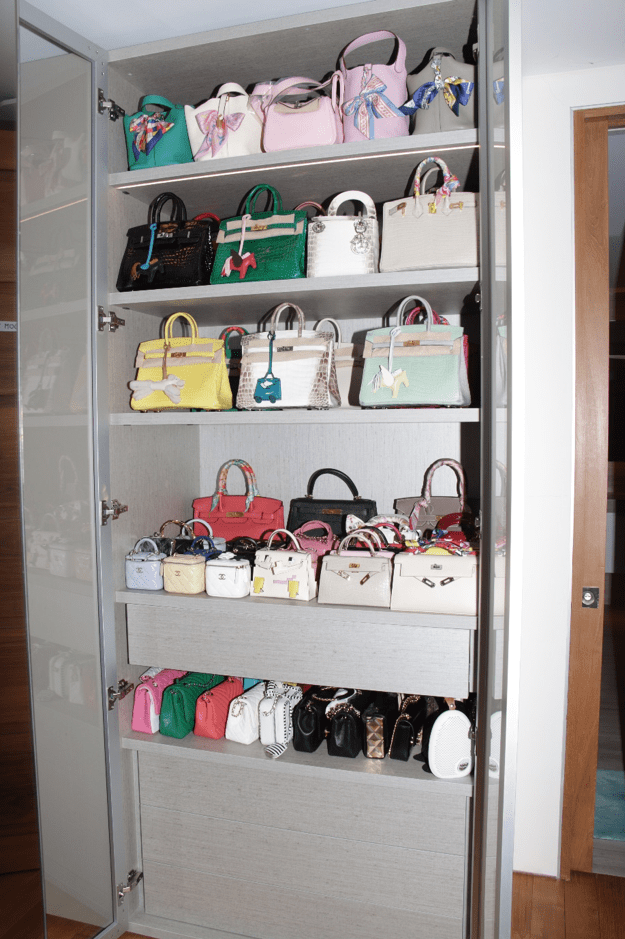Singapore, a global financial hub known for its strict financial regulations, has recently been thrust into the spotlight with a staggering money laundering probe of S$1 billion (US$736 million) and centers around a group of 10 foreign nationals who have been arrested in connection with the alleged money laundering activities. The case has sent shockwaves through the country and beyond, highlighting the magnitude of the illicit financial activities that can occur even in the most tightly regulated environments.
At the heart of this intricate web of financial impropriety are a series of high-end properties and assets owned by the individuals under investigation. The properties, a total of 105 according to a recent update from the police, include seven luxurious detached bungalows nestled in Sentosa Cove, 79 opulent condominium units, and 19 commercial spaces. These assets, with an estimated combined value of S$831 million, represent a vast fortune that has now been subjected to a prohibition of disposal order by authorities. The order prevents any transfer or disposal of these assets as the investigation unfolds.
Notably, the prohibition of disposal orders doesn't extend to the Good Class Bungalows (GCBs) in which the suspects were apprehended. Foreigners are not allowed to buy landed properties in Singapore without approval, except for 99-year-leasehold houses on Sentosa. While these prime real estate holdings were not included in the properties subject to the order, they nonetheless played a crucial role in the investigation's early stages. The GCBs are said to have served as the backdrop for the arrests, providing a dramatic scene for the unfolding probe.
The suspects, hailing from diverse corners of the world, were found to be residing in affluent neighborhoods such as Sentosa Cove, Tanglin, Orchard, Holland, and River Valley. These locations, known for their exclusivity and upscale living, provided the suspects with a lavish lifestyle that was allegedly funded through dubious financial transactions.
As part of the investigation, authorities have seized an astonishing array of assets, totaling around S$1 billion. These assets include not only the aforementioned properties but also encompass bank accounts, luxury cars, substantial amounts of cash, and valuable goods. The breadth and depth of the seizure paint a vivid picture of the magnitude of the money laundering operation and the extent to which the suspects' ill-gotten gains were dispersed.
In a related development, the Ministry of Manpower (MOM) released a separate statement shedding light on the legal status of the arrested individuals. The 10 suspects, aged between 31 and 44, were found to be holding Employment and Dependant Passes. These individuals, citizens of Cyprus, Türkiye, China, Cambodia, and Ni-Vanuatu, were living and working in Singapore under these passes. All are said to have originated from Fujian in China. MOM has indicated that if serious offenses are discovered, appropriate actions will be taken against the suspects in collaboration with the police and the Attorney-General’s Chambers.
The MOM's statement further underscores the importance of accurate and truthful information in work pass applications. The ministry emphasized that all employers and work pass applicants must declare the veracity of the information contained in their applications. This includes details about the applicants' personal particulars, company information, work experience, salary, and qualifications. MOM has pledged to meticulously assess all applications and thoroughly investigate any indications of suspicious information.
As this complex and far-reaching money laundering probe continues to unravel, it serves as a stark reminder that financial misconduct can permeate even the most seemingly impervious environments. Singapore's rigorous regulatory framework and commitment to combat money laundering are now put to the test as authorities work to untangle the intricate threads of this high-stakes investigation.
Among those apprehended is Su Haijin, a 40-year-old citizen of Cyprus, who was arrested in a Good Class Bungalow (GCB) located on Ewart Park in the Holland area. Su Haijin faces a charge of resisting lawful apprehension, a serious offense that highlights Singapore's commitment to maintaining law and order within its jurisdiction.
Similarly, Vang Shuiming, a 42-year-old national of Turkiye, was arrested in a GCB situated on Bishopsgate in the Tanglin area. Vang Shuiming's charge centers on the use of a forged document, shedding light on the prevalence of fraudulent activities that can undermine the integrity of financial systems.
In another case, Zhang Ruijin and Lin Baoying, both citizens of China aged 44 and 43 respectively, were arrested in a bungalow on Pearl Island at Sentosa Cove. The charges brought against them involve forgery for the purpose of cheating, emphasizing the potential consequences of manipulating documents for financial gain.
Su Baolin, a 41-year-old Cambodian national, was apprehended in a GCB on Nassim Road and faces charges related to using a forged document, highlighting the diverse nature of financial crimes and the reach of law enforcement agencies in pursuing offenders.
Turning the spotlight to money laundering, Su Jianfeng, a 35-year-old citizen of Ni-Vanuatu, was arrested in a GCB along Third Avenue near Bukit Timah. The charges against him reveal the challenges Singapore faces in preventing the illicit flow of funds and the need to curtail money laundering activities.
Chen Qingyuan, a 33-year-old Cambodian national, was arrested in New Futura on Leonie Hill on Leonie Hill Road in the River Valley area. The charge against him involves money laundering, a grave offense that can have far-reaching implications for both individuals and the broader financial landscape.
Likewise, Wang Dehai, a 34-year-old citizen of Cyprus, was apprehended in a condominium The Marq on Paterson Hill in the Orchard area. Wang Dehai's case underscores the authorities' determination to address money laundering, a crime that threatens the stability and reputation of financial institutions.
Another individual, Wang Baosen, a 31-year-old national of China, was arrested in a condominium on Tomlinson Road in the Tanglin area. The charge against him centers on money laundering, highlighting the continuous efforts by Singaporean authorities to safeguard the country's financial integrity.
Lastly, Su Wenqiang, a 31-year-old Cambodian national, was arrested in a GCB on Lewis Road in the Bukit Timah area. The charges brought against him once again emphasize the battle against money laundering and the vigilance required to prevent its proliferation.
The Singapore Police Force's recent success in cracking down on suspected criminal syndicates has not only revealed their organized modus operandi but also their penchant for luxury. With more than 35 bank accounts frozen, totaling an estimated S$110 million, authorities have taken a significant step towards dismantling these networks and impeding the flow of suspected ill-gotten gains. The move not only aids in investigations but also serves as a deterrent for the dissipation of criminal proceeds.

However, the financial clampdown is only the tip of the iceberg. The sheer opulence and extravagance on display have captured global attention. Seized assets include more than S$23 million in cash, an impressive collection of luxury bags and watches numbering over 250, a staggering array of 120 electronic devices such as computers and mobile phones, and a lavish array of 270 pieces of jewelry. The discovery of two gold bars adds an additional layer of intrigue, hinting at a wealth accumulation strategy that transcends conventional investments.
Photographs released by the police provide a visual narrative of the extent of this ill-gotten wealth. Boxes brimming with jewelry, ranging from gold bracelets to diamond-studded accessories, evoke a sense of awe and bewilderment. The images reveal a trove of luxury watches, prominently featuring prestigious brands like Rolex and Patek Philippe. Hermès, Dior, Chanel, and Louis Vuitton handbags further underscore the extravagant tastes of these alleged criminals.

The ostentatious display of wealth extends beyond personal accessories. The confiscated assets also encompass an impressive collection of vehicles, with Bentleys standing as a symbol of status and excess. A peculiar addition to the collection is a display of 60 figurines resembling Bearbrick collectibles, potentially serving as an alternative investment avenue favored by the criminal syndicates.
Racks upon racks of alcohol bottles and wads of cash tucked away in safes and suitcases speak to the lavish lifestyle these criminals may have led. The assortment of seized items paints a picture of individuals indulging in extravagance, seemingly unburdened by ethical constraints or the consequences of their actions.

Property agents are required to flag suspicious transactions especially if the buyer is a foreigner and not taking any home loan.
In addition, every real estate salesperson must complete a customer due diligence (CDD) checklist for each property transaction.
Council for Estate Agencies (CEA) will be working closely with Singapore Police Force (SPF) to retrieve transactions details pertaining to properties bought from illicit funds. CEA may cross check with the respective estate agencies to ensure there is no lapses.
Starting from June 28th, developers will be mandated to conduct thorough customer due diligence checks for all transactions involving uncompleted residential and non-residential properties that fall under the purview of the Housing Developers (Control & Licensing) Act and the Sale of Commercial Properties Act.
In the event that developers have suspicions about potential instances of money laundering or terrorism financing, they will be obligated to file a report with the Suspicious Transaction Reporting Office, which operates within the framework of the Commercial Affairs Department. Notably, specific figures and data related to the submission of such reports are not publicly disclosed.
The URA has emphasized that developers must integrate a comprehensive assessment of money laundering and terrorism financing risks into their practices. This includes taking into account factors such as the origin of the purchaser, especially if the purchaser hails from a nation subjected to heightened monitoring. Additionally, developers are required to cross-reference purchasers against designated lists outlined in the Terrorism (Suppression of Financing) Act and the United Nations Act as part of their risk analysis process.

